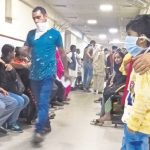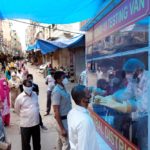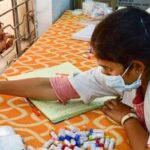As the COVID-19 cases in India cross 4.47 million mark, NDTV speaks to Dr Madhukar Pai, epidemiologist and director of The McGill International TB Centre in Canada about the situation in India as coronavirus moves to smaller towns and villages. Dr Pai also talked about how Canada has dealt with the coronavirus pandemic so far and COVID-19 reinfections.
NDTV: What would you say about how India has handled the pandemic so far?
Dr Madhukar Pai: I worry about India every minute; my family is in India. The spread of rural India is absolutely terrifying. The problem with India, as you know, is that our health system was quite fragile even before the pandemic. And that’s why our public health infrastructure was never great. India continued to underinvest in Health as a percentage of the GDP for decades and decades. So, in a crisis, public health is just drowning in COVID-19.
The private health system, which we all thought was the solution, has had its own challenges. Cost of care has gone up. People are running from hospital to hospital looking for private-sector care and its very challenging for someone in India because they’re stuck between underfunded public system and a potentially exploitative private health. Now in a rural area, the private health sector is what?
You don’t even have private hospitals in many rural areas. What you have are the Government Public Health Centres and Community Health Centres. And you have the informal providers. What we call the alternative healers. Ayush practitioners, unqualified practitioners. They are the backbone of India’s Health System. In fact, 70 per cent of rural primary care is the informal sector. Now how does an informal provider deal with COVID-19?
Want to publish your own articles on DistilINFO Publications?
Send us an email, we will get in touch with you.
I can’t even understand where that capacity will come from. Where are the ICUs? Where are the ventilators? How are people who are really sick going to survive this? So my hunch says, and I hope I’m wrong, that the mortality rate in rural areas has to be higher just because you don’t have access to high-quality medical care and that is a huge concern. I’m also very concerned that everybody is so tunnel-visioned about COVID-19, that we’ve dropped the ball on everything else.
What about routine immunisation? What about maternal and child health? What happens to Tuberculosis? What happens to people with malaria or cancer or Diabetes? By only focusing on COVID-19, we haven’t done enough to resume normal healthcare services so that mortality is lowered because the death rate in India is not just COVID-19.
Because people are dying from untreated Diabetes or untreated TB. We must get a handle on it and we must resume routine health services in every place, rural and urban.
NDTV: How has Canada dealt with the COVID-19 pandemic? Are they doing extensive testing?
Dr Madhukar Pai: Firstly, among the richer countries, Canada has done well. Perhaps not as well as Australia or New Zealand for example, but in comparison to the US, Canada has done really well. As of now, we have about 1,30,000 COVID-19 cases confirmed, about 9,000 deaths. Although the number of deaths is not large, it turns out to be 7 per cent of all those who developed COVID-19 virus. 7 per cent is a quite high death rate. The reason why I think Canada did not do well is that Canada has a large number of elderly people.
People above 70 or 80. And 80 per cent of all COVID-19 deaths have occurred in the elderly long care facility homes or what we would call nursing homes where the elderly life. That’s where the epidemic absolutely ravaged Canada and left a large number of home facilities compromised and it really exposed a very negative part of how elderly people were being managed in Canada and I hope it will lead to some reforms in that area.
And I think that is one area where Canada gets a very poor score in terms of tests done. The testing rate is not too bad. The testing rate is 1,47,000 per million population. But all of us here in Canada wish testing were easier to access than what it has been. It has IS still been a bottleneck. I think testing has been a bottleneck for every country in the world and the same thing is true for Canada.
We’ve done better than in the past. But even now, my child has started going to school and nobody in the school are being tested. So, we don’t even know at entry during the school year that what per cent of our children are infected. So testing is still a bottleneck I would say.
NDTV: It has been 8-9 months of us dealing with this pandemic, what do you see the challenges are, going forward?
Dr Madhukar Pai: I think here at least, in many countries, in North America for example, we are really worried as our children have just started going back to school. So many months they’ve been at home. They’ve been protected. Now they’re out of the bubble. They’ve started to get together in big numbers.
Yes, the schools are trying to reduce the congregation. They aren’t asking for children to be masked above a certain age. They are using hand sanitisers. But we don’t know how long this is sustainable. But children are children and it’s very hard for them to not engage with their fellow classmates that they’re missing for a long time.
Source: Swachh India








